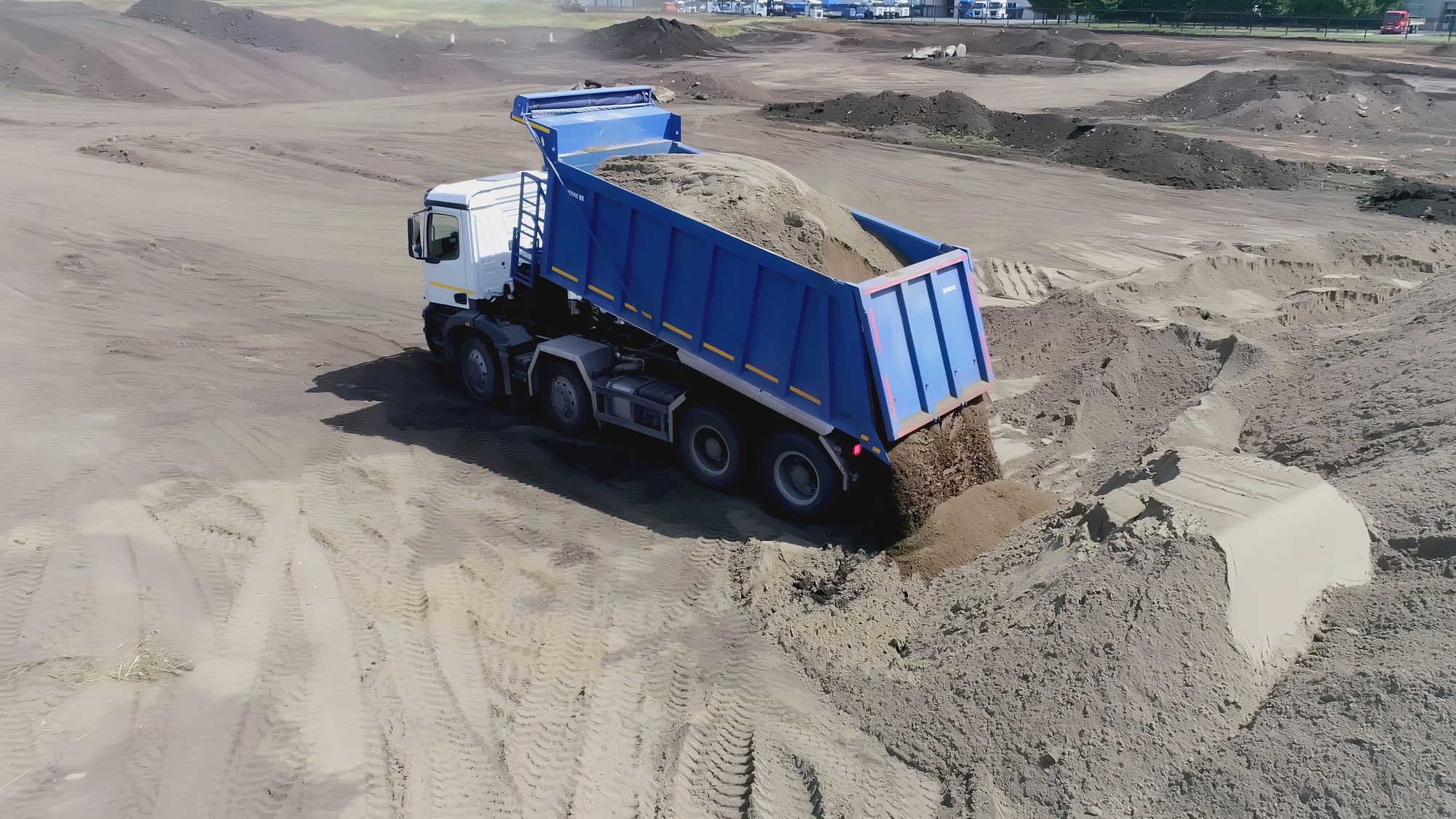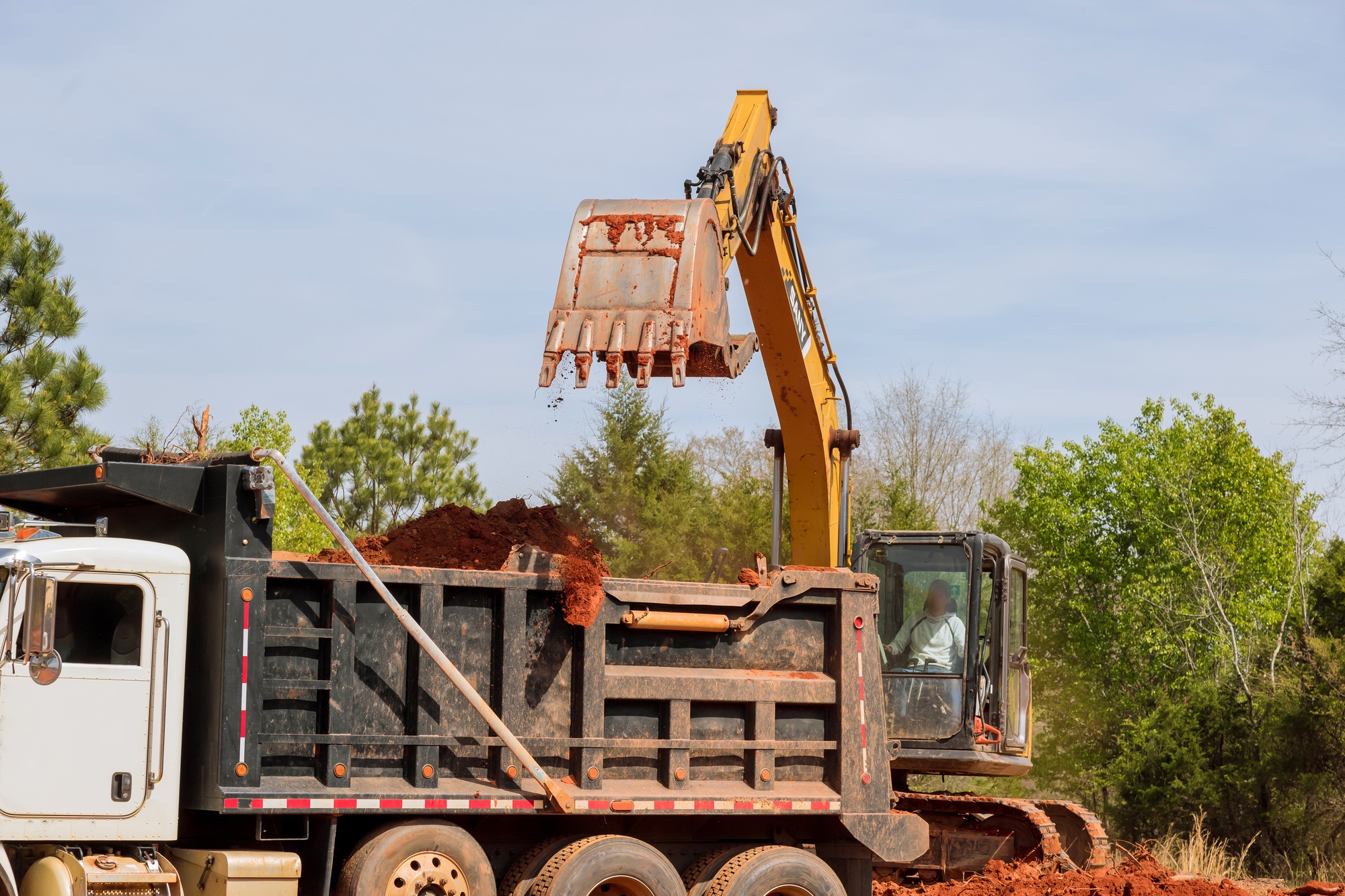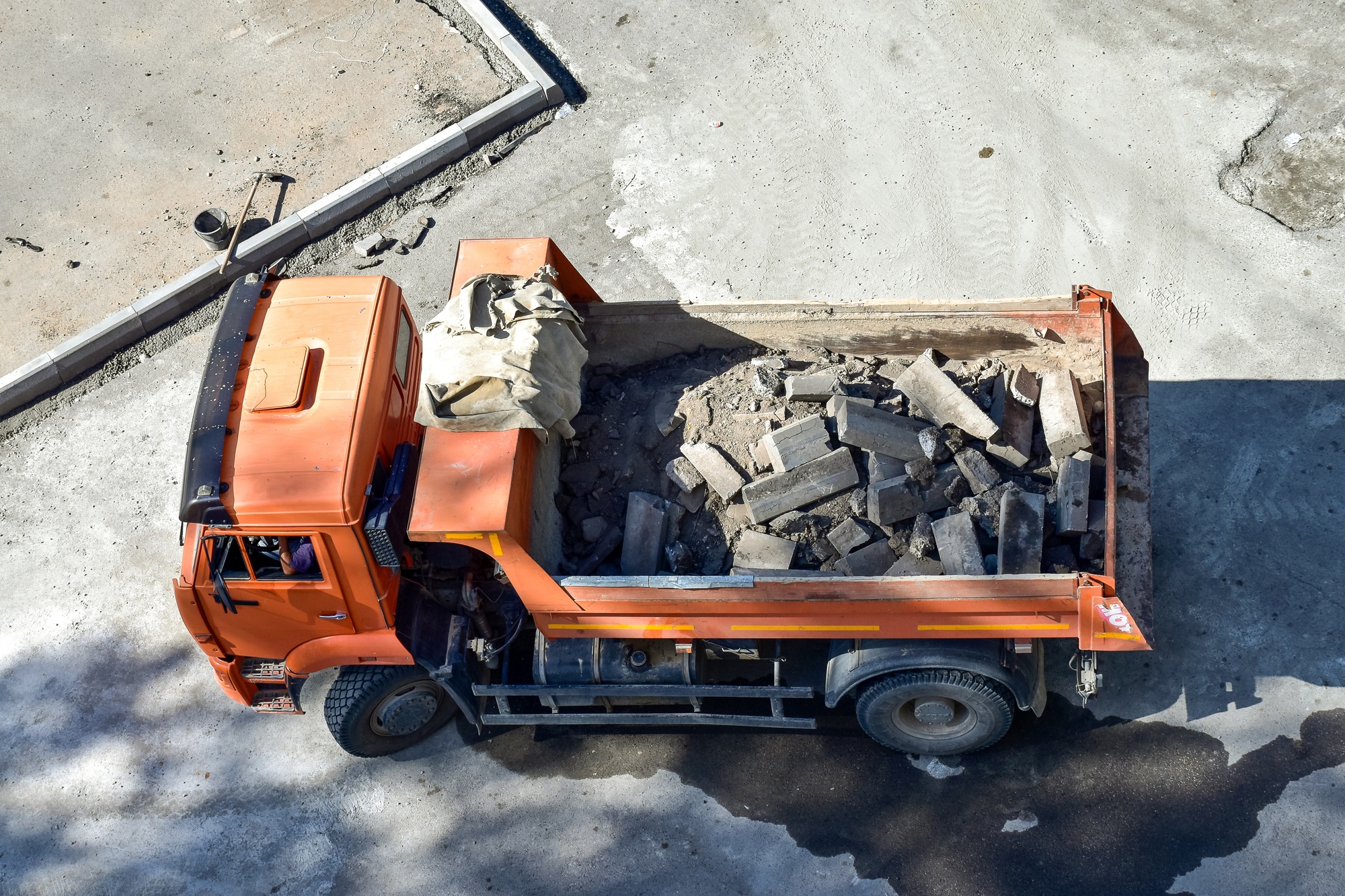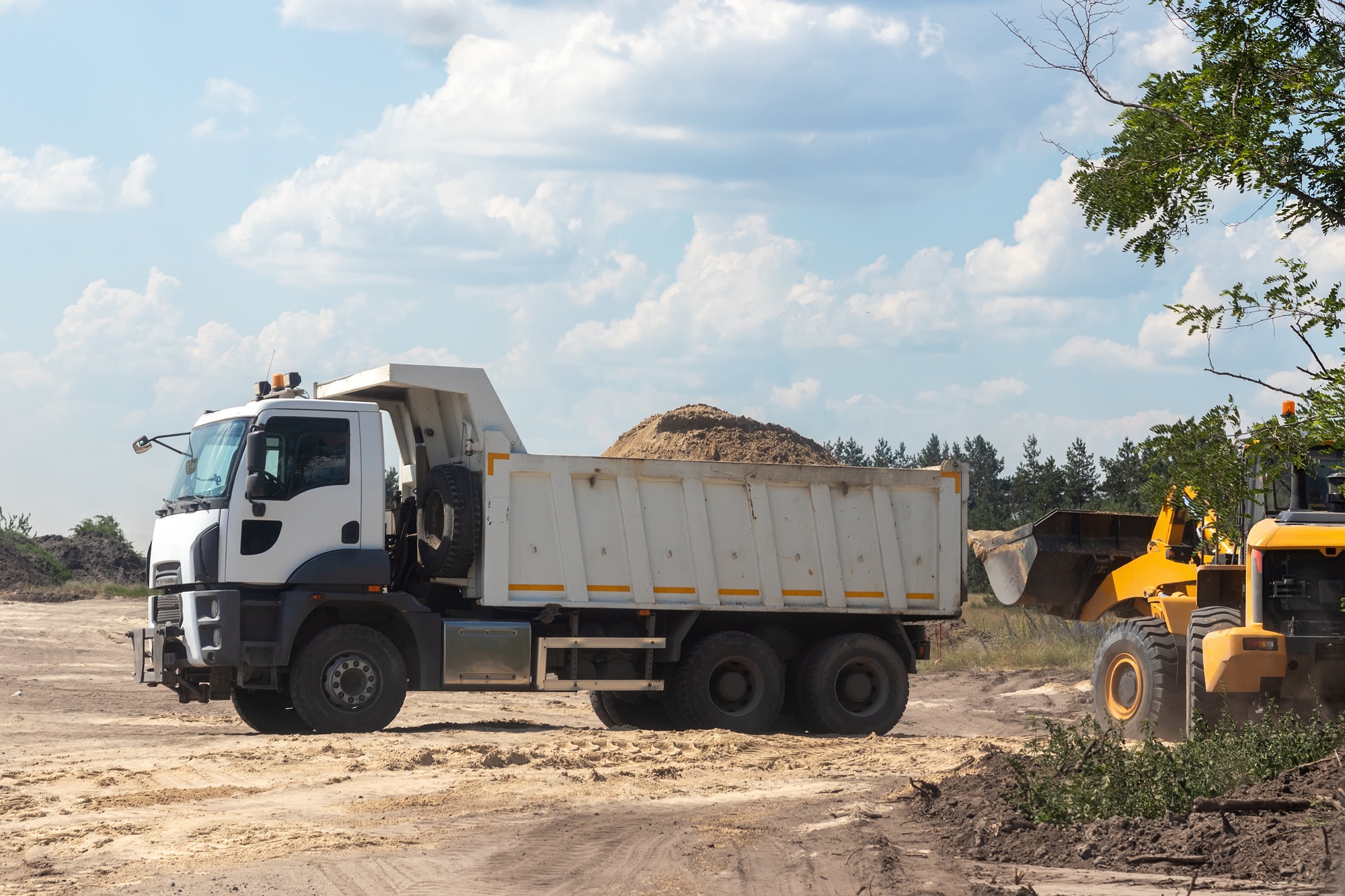Starting a dump truck business is like Begining on an exciting adventure! This guide provides the necessary knowledge you need to launch your own company. Learn how to develop a solid business plan, understand key costs, and pinpoint your target customers.
We’ll explore critical steps, from researching the dump truck industry to obtaining necessary permits. If you’re eyeing a new or used truck, this guide will equip you to transport materials safely and efficiently. Prepare yourself to turn your dream into a successful reality!

Key Takeaways
- Dive in in market research to uncover demand, assess competition, and identify your ideal clients.
- Develop a complete business plan that outlines your strategy, expenses, and operational blueprint.
- Choose the appropriate business structure and steer the legal place of running a dump truck operation.
- Focus on reliable service and rigorous truck maintenance to build a strong reputation in the industry.
Why Start a Dump Truck Business
Starting a dump truck business is like Begining on an exhilarating voyage. Imagine yourself as the captain finding your way the busy waters of the trucking industry. But how do you set sail?
It begins with a solid business plan that outlines your objectives and strategies.
Initial, choose your business structure. Will you operate as a sole proprietorship or a limited liability company (LLC)? Each choice has distinct tax implications and risk levels. A sole proprietorship is akin to playing a solo game, where you bear all the risks. On the contrary, an LLC offers limited liability protection, shielding your personal assets from business debts.
Next, pinpoint your target customers. Who will depend on your dump truck services? Potential clients include construction companies, landscaping firms, and local municipalities needing to transport construction debris or building materials. Understanding your market is critical, much like knowing the terrain before a hike.
Now, let’s explore startup costs. Acquiring a new or used truck can cost anywhere from $20,000 to over $100,000, depending on the model and condition. Don’t forget about commercial insurance, business licenses, and a business bank account to manage your finances. Think of these expenses as the fuel that drives your business engine.
Once you have your truck and permits, it’s time to start hauling. This is where the action happens. Building strong relationships with industry professionals and mastering effective marketing strategies are necessary. Tools like Google Maps can help you locate job sites and potential clients nearby.
Launching your own dump truck company is more than just owning a truck; it’s about creating a reputable business that serves your community. With careful planning and execution, you can steer the challenges of the dump truck industry and achieve lasting success.
| Startup Costs | Estimated Amount |
|---|---|
| Used Truck | $20,000 – $50,000 |
| Commercial Insurance | $10,000/year |
| Business License | $200 – $500 |
| DOT Registration | $500 |
Why Start a Dump Truck Business

Starting a dump truck business unlocks a area of opportunities. Have you ever thought about how necessary dump trucks are in our daily lives?
They transport everything from construction debris to building materials, forming the backbone of the construction industry. With a growing demand for these services, this venture can be highly profitable.
Imagine yourself as the captain of a ship, finding your way the dynamic waters of the trucking industry. Owning a dump truck company allows you to make pivotal decisions that steer your business toward success. With a solid business plan, you can chart a course to financial independence. But what does it take to set sail on this journey?
- Low Barrier to Entry: Starting a dump truck business is more accessible than many ventures. You can begin with a used truck and gradually expand your fleet.
- Flexibility: If you choose to work as an owner-operator or hire truck drivers, you can tailor your business to fit your lifestyle and goals.
- High Demand: With ongoing construction projects and a constant need for hauling services, your services will always be in demand.
Yet, every journey has its hurdles. Have you considered the startup costs? From purchasing a truck to securing commercial insurance, expenses can add up quickly. Plus, you’ll need to steer the legal requirements for starting a business, such as obtaining a business license and choosing a business entity like a limited liability company.
Success relies on careful planning. Conduct thorough market research to identify your target customers and understand the competitive place. Think of it as preparing for a championship game; the more you know about your opponents, the better your chances of winning.
Starting a dump truck business is more than just owning a truck; it’s about creating a thriving enterprise in a competitive market. With dedication, strategic planning, and a dash of grit, you can transform your dump truck venture into a profitable success. Are you ready to hit the road?
Understanding the Costs of Starting a Dump Truck Company
Starting a dump truck business is an exhilarating venture, but understanding the costs involved is necessary. Think of it as building a house; without a solid foundation, the structure crumbles. What expenses should you anticipate?
- Truck Costs: The biggest expense is acquiring a dump truck. A reliable used truck can cost around $100,000, while a new one may exceed that. You might wonder, “Should I buy new or used?” This decision dramatically impacts your startup costs.
- Insurance: Budget approximately $10,000 annually for commercial insurance. Consider it your safety net, protecting your investment and ensuring compliance with trucking regulations.
- Licensing and Registration: Obtaining a business license and registering your truck usually costs about $700. This is your ticket to legally operate your dump truck company.
- Fuel and Maintenance: Fuel expenses can reach $25,000 a year, depending on your driving habits. Regular maintenance is critical; it keeps your truck running smoothly and prevents costly repairs down the line.
Let’s break down the total estimated startup costs:
| Expense Type | Estimated Cost |
|---|---|
| Used Dump Truck | $100,000 |
| Insurance | $10,000 |
| Licensing/Registration | $700 |
| Annual Fuel Cost | $25,000 |
| Total Estimated Startup Cost | $135,700 |
Beyond these initial costs, consider operating expenses like hiring truck drivers and investing in accounting software to manage your finances. These elements are the fuel that keeps your business engine running smoothly.
Grasping these costs is critical for your success. With strategic planning and a solid business plan, you can steer the dump truck industry effectively. Are you ready to plunge into this high-demand market?
Developing a Business Plan for Your Dump Truck Venture

Starting your own dump truck business is like building the foundation of a skyscraper; a strong business plan is critical for your success. But what elements should this plan include to help your venture thrive?
Initial, define your business goals. Are you aiming for local contracts or larger projects?
Setting clear objectives is like charting a course on a map; it guides your decisions and actions.
Next, conduct thorough market research. Understand your competition and identify your target customers. Think of this as scouting the terrain before a big journey; knowing the place helps you steer effectively.
Financial planning is another cornerstone. Outline your startup costs, operational expenses, and projected revenues. This is your financial blueprint, detailing how to build your business sustainably. Will you need loans or investors?
Be prepared with a solid financial strategy.
Don’t forget about your marketing strategy. How will you attract clients?
Consider online advertising, social media, and networking. Your marketing plan is like a megaphone, amplifying your presence in a crowded market.
At last, outline your operational plan. Detail the logistics of running your dump truck business, including equipment maintenance and staffing. This is the engine that keeps your business running smoothly.
Basically, a well-crafted business plan is your roadmap to success. It not only helps you steer challenges but also positions your dump truck venture for growth and profitability.
Choosing the Right Business Structure for Your Dump Truck Business
Starting your own dump truck business hinges on one pivotal choice: selecting the right business structure. Imagine it as picking the ideal truck for your job; a poor selection can lead to costly detours. So, what options are on the table?
Consider these common structures:
- Sole Proprietorship: The simplest route. You own everything and shoulder all responsibilities. It’s like driving a solo truck; you have total control but also bear full liability.
- Partnership: Joining forces with someone?This structure allows you to share profits and responsibilities, akin to two drivers sharing a truck. Just be wary—disagreements can create bumps in the road!
- Limited Liability Company (LLC): This option safeguards your personal assets if things go awry. Think of it as a strong truck that can steer rough terrain, shielding you from personal liability.
- Corporation: Ideal for larger operations, this structure protects owners from personal liability but may face double taxation. Picture it as a fleet of trucks; it demands more management but can tackle bigger jobs.
Your choice of structure affects your startup costs, tax implications, and legal requirements. An LLC might have higher setup costs than a sole proprietorship, but isn’t it smarter to invest a bit more now for greater protection later?
Also, consider how your choice shapes your business plan. A solid plan helps you pinpoint your target customers and define your operational strategy. Without clear direction, you risk getting lost—like a truck driver without a map.
At last, establish a business bank account and explore insurance options. These are critical for managing finances and protecting your investment. Just as you wouldn’t drive without a seatbelt, don’t run your business without these necessary safety nets.
The right business structure lays the groundwork for your dump truck company. Research thoroughly and consult industry professionals to make an informed choice. A well-planned start can steer you toward success in the trucking industry.
Registering and Licensing Your Business
Ready to launch your own dump truck business? Registering and licensing your company is the necessary initial step—like laying a solid foundation for a house. Without it, everything else can crumble. But how do you build that strong base?
Start by choosing a business name. This name is your brand’s identity, the face of your company. It should be memorable and reflect your services. Next, decide on your business structure. Will you operate as a sole proprietorship or form a limited liability company (LLC)? An LLC provides limited liability protection, shielding your personal assets from legal issues.
Next, obtain a business license. Think of it as your ticket to the concert of commerce; without it, you can’t join the show. Check with your local government for specific requirements, as they can vary widely. You may also need operational permits, especially if you plan to haul materials from construction sites.
If you plan to drive the dump truck yourself, securing a commercial driver’s license (CDL) is critical. It’s your key to the vehicle; without it, driving legally is impossible. Familiarize yourself with your state’s requirements, as they can differ.
Once you have your licenses, set up a business bank account. This keeps your personal and business finances separate, making it easier to track income and expenses. Plus, it adds a professional touch that signals to clients you mean business.
Now, let’s talk about insurance. Just as you wouldn’t drive without a seatbelt, operating a dump truck without commercial insurance is a gamble. This coverage protects your business from unexpected events, like accidents or truck damage. Insurance costs vary based on factors such as your driving history and the type of coverage you choose.
At last, consider investing in accounting software. This tool acts as your business’s personal trainer, helping you manage finances, track expenses, and prepare for tax season.
By following these steps, you’ll set your dump truck business on the path to success. Remember, careful planning and compliance with regulations are critical for thriving in the trucking industry. For more insights on starting your journey, explore this helpful guide that covers the essentials.
Securing Financing for Your Business

Starting your own dump truck business is like hitting the open road; securing financing is the fuel that drives your journey. But how do you steer the twists and turns of funding?
Let’s jump in.
Initial, evaluate your startup costs. This includes purchasing a new or used truck, obtaining commercial insurance, and managing business registration. You might need around $100,000 to kick things off. Think of this as laying a solid foundation for a skyscraper—without it, your business risks collapse.
Loan options are your allies in this venture. Explore small business loans from banks or lenders specializing in the trucking industry. These often come with lower down payments and flexible terms. Plus, consider equipment financing, which allows you to acquire trucks while testing the option to own them later—like leasing with a path to ownership.
Have you checked your credit score? It’s a critical piece of your financing puzzle. A higher score can open up better options, much like finding a key to a treasure chest. If your credit needs work, consider teaming up with someone who has a stronger financial background; this partnership can increase your chances of securing funds.
Next, craft a solid business plan. This document acts as your roadmap, outlining your goals, strategies, and financial projections. It’s like a treasure map, guiding you toward success. Investors and lenders will want to see this before they commit. Include details about your target customers and your strategies for attracting them.
At last, prioritize cash flow management. Once your truck is on the road, tracking your earnings and expenses is critical. Using accounting software can help you steer your finances like a seasoned pro, ensuring you don’t get lost in the numbers—like a truck driver without a GPS.
Purchasing or Leasing the Right Dump Truck

Launching your dump truck business hinges on a critical decision: should you purchase or lease your dump truck?
This choice is like deciding between owning a home and renting an apartment, each path offering distinct advantages and challenges that can influence your business management and success.
Purchasing a dump truck means full ownership, akin to planting a tree that thrives with time and care. But, this route demands substantial upfront costs, including the purchase price, insurance requirements, and ongoing maintenance. You must also consider the payload capacity and fuel efficiency to make sure it meets your hauling services needs.
On the flip side, leasing a dump truck is like renting a car for a road trip. It provides access to a truck without the hefty initial investment. Leasing usually involves lower monthly payments and less maintenance responsibility, easing your startup costs. But, you won’t build equity in the vehicle, and there may be usage restrictions.
As you evaluate your options, keep these key factors in mind:
- Cost: What’s your budget?Can you manage commercial insurance and other operational expenses?
- Usage: How often will you need the truck?Will it serve construction sites or other job locations?
- Flexibility: Do you want the option to switch trucks as your business grows?
Also, consider your business plan. A strong plan helps you determine whether leasing or purchasing aligns with your long-term goals. If rapid growth is on your horizon, leasing might provide the flexibility you need to adapt to changing demands.
Conduct complete market research to understand the dump truck industry and identify potential customers. Knowing your target market empowers you to make an good choice about your truck acquisition strategy. Access valuable resources and templates for your business plan here.
In the end, if you choose to purchase or lease, make sure your decision aligns with your in general business strategy and financial situation. The right truck can become the backbone of your dump truck company, enabling you to deliver exceptional service and drive growth.
Insuring Your Business and Equipment

Starting your dump truck business? Insuring your equipment is as necessary as choosing the right vehicle. Think of insurance as your safety net; it cushions unexpected falls, much like a trampoline absorbs your jumps. Without it, even a minor mishap can lead to financial disaster.
Here are the key types of insurance you need:
- Commercial Vehicle Insurance: This shields your dump truck from damage and covers liability for accidents. Picture it as a protective barrier for your valuable assets.
- Liability Coverage: If your work damages someone else’s property or injures a person, this insurance helps cover those costs. It’s like having a superhero ready to defend you in a crisis.
- Property Insurance: This safeguards your tools and equipment against theft or damage. Think of it as your backup plan for those “just in case” moments.
- Workers’ Compensation Insurance: If you have employees, this covers their medical expenses for work-related injuries. Consider it a safety harness for your team.
How do you choose the right insurance policies? Begin by evaluating your startup costs and the specific risks associated with your dump truck services. Just as a tailor measures fabric before cutting, assess your needs before making decisions.
Don’t forget to shop around. Compare different insurance providers to find the best coverage at a fair price. You wouldn’t buy the initial pair of shoes you see without checking the fit, right?
The same principle applies to insurance.
Consider partnering with an insurance agent who specializes in commercial insurance. They can guide you through the complex place of policies, ensuring you secure the right coverage without overspending. Remember, strategic planning and protection can be the difference between a thriving business and one that barely survives.
As you begin on your journey to own a dump truck company, prioritize insurance. It’s not just a requirement; it’s a critical component of your business plan that safeguards your hard work and investment.
Building a Client Base and Marketing Strategy

Building a strong client base and an effective marketing strategy is critical for launching your own dump truck business. Think of it as planting a garden: you need the right seeds, soil, and care to thrive. Here, your seeds symbolize potential clients, while your soil represents your marketing plan.
Begin by identifying your target customers. Who needs your dump truck services? Key clients usually include construction companies, landscapers, and municipalities—those who frequently haul construction debris or building materials. By focusing on these groups, you can tailor your services to meet their specific needs.
Next, develop a marketing plan. This is your roadmap to success. Combine traditional and digital marketing strategies. For example:
- Networking: Attend local construction events to connect with potential clients.
- Social Media Marketing: Create profiles on platforms like Facebook and Instagram to showcase your trucks and services.
- Referral Programs: Encourage satisfied clients to refer you by offering discounts or incentives.
Conducting market research is necessary. This knowledge helps you understand your competition and the demand for dump truck services in your area. Use tools like Google Maps to find local businesses that may need your services.
Your branding is similarly significant. Choose a catchy and memorable business name, like a tune that sticks in your head. This makes it easier for clients to remember you when they need a dump truck company.
At last, nurture your customer relationships. Use accounting software to manage your finances and make sure accurate pricing for your services. This helps you avoid the pitfalls of double taxation and keeps your business thriving.
By implementing these strategies, you’ll be well on your way to establishing a successful dump truck business. Remember, like a garden, patience and effort are necessary to reaping the rewards of your hard work!
Managing Operations and Logistics Efficiently

Launching a dump truck business demands sharp management of operations and logistics. Think of your business as a high-performance engine; if one part falters, the entire system can stall. How do you make sure it runs seamlessly?
Focus on these key areas.
Initial, pinpoint your target customers. Who needs your hauling services? Typical clients include construction companies, landscaping firms, and homeowners. Identifying these groups allows you to craft tailored marketing strategies. Use tools like Google Maps to uncover job sites and potential clients—consider it your business’s treasure map!
Next, evaluate your equipment needs. Will you invest in a new or used truck? Each option has its perks. New trucks come with warranties, while used ones are easier on the wallet. Align your choice with your startup costs and financial plan. Don’t forget to factor in maintenance and fuel efficiency—just like a well-fed engine runs better!
Now, let’s tackle business management. A successful owner-operator requires a solid business plan. This plan is your roadmap, outlining everything from your business name to marketing strategies. Don’t ignore legalities—establishing a limited liability company protects your personal assets from business risks.
Insurance is critical. You’ll need commercial insurance to safeguard your dump truck and yourself. Think of it as your safety net, much like wearing a helmet while biking. Plus, consider using accounting software to keep your finances in check. Organized books are like a clear dashboard showing your business’s performance.
At last, prioritize logistics optimization. Smart route planning cuts costs and boosts efficiency. Harness technology to automate scheduling and track loads, testing you organized and your customers happy. Remember, a satisfied customer is your best advertisement for dump truck services!
| Key Area | Importance |
|---|---|
| Target Customers | Identifying your audience sharpens marketing efforts. |
| Equipment | The right truck choice impacts costs and operations. |
| Business Plan | A solid plan directs your strategy and growth. |
| Insurance | Protects against operational risks and liabilities. |
| Logistics | Efficient routing and scheduling improve service and reduce costs. |
By honing in on these areas, you can effectively manage your dump truck business operations and logistics, paving the way for success in this dynamic industry.
Launching Your Business and Starting Operations

Starting your own dump truck business is like planting a seed; with the right care, it can grow into something significant. But how do you get started?
Here’s a straightforward roadmap for launching your business and beginning operations.
Initial, create a strong business plan. Think of it as the blueprint for your building. It should outline your goals, strategies, and financial forecasts. Who are your target customers? Will you serve construction sites or provide hauling services? Knowing your market allows you to tailor your offerings effectively.
Finding your way the legal place is critical. Are you aware of the necessary permits and licenses?
Depending on your location, you may need a commercial driver’s license and a business license. Research these requirements thoroughly—like checking the weather before a big event—to make sure everything runs smoothly.
- Choose a Business Structure: Decide whether to operate as a sole proprietorship or a limited liability company (LLC). An LLC provides limited liability protection, safeguarding your personal assets.
- Open a Business Bank Account: Keep your business finances separate from personal ones. This simplifies accounting and tax preparation.
- Acquire Equipment: Decide whether to buy new or used trucks. Each option has its pros and cons, much like choosing between a shiny new bike and a reliable next-hand one.
- Get Commercial Insurance: Protect your investment. Accidents happen, and the right coverage can shield you from significant losses.
With these essentials in place, shift your focus to marketing your dump truck services. Use platforms like Google Maps to improve visibility. Build partnerships with construction companies and other businesses that may need your services. Networking in the trucking industry is like weaving a strong net—together, you’re more strong.
At last, monitor operational efficiency. Use accounting software to track expenses and revenue, ensuring profitability. Regularly assess your maintenance schedules and customer feedback to continuously improve your services.
By following these steps, you can transform your dream of owning a dump truck company into reality. With careful planning and execution, you’re not just starting a business; you’re paving your way to success in a high-demand industry.
Tips for Success in the Dump Truck Industry

Starting a dump truck business is like Begining on an adventurous voyage. Imagine yourself as the captain finding your way the expansive trucking industry. To sail smoothly, you need a solid plan and a keen understanding of the place. Here are critical tips to help you excel in this rewarding field.
1. Craft a Detailed Business Plan: Think of your business plan as a treasure map, detailing your goals, strategies, and financial forecasts. What are your ambitions?
How will you attract potential customers? A well-structured plan will steer you through rough waters.
2. Select the Right Business Structure: Will you operate as a sole proprietorship or form a limited liability company (LLC)? Each option has unique benefits. An LLC, for instance, offers limited liability protection, safeguarding your personal assets from business debts—like wearing a life jacket in turbulent seas.
3. Understand Your Startup Costs: Just as a ship needs fuel, your dump truck business requires capital for equipment, licenses, and insurance. If you choose a new or used truck, budget wisely. Costs can range from $20,000 to $200,000, depending on different factors.
4. Secure Necessary Licenses and Insurance: Operating without the right licenses is like sailing without a compass. Obtain a commercial driver’s license and necessary permits. Plus, commercial insurance is critical to protect your business from unforeseen challenges.
5. Define Your Target Market: Who will benefit from your dump truck services? Construction firms, landscaping companies, and homeowners are all potential clients. Understanding your audience is key to crafting effective marketing strategies.
6. Invest in Marketing: In the modern online world, a strong online presence is critical. Use Google Maps for local SEO and explore social media advertising to reach potential clients. A well-placed ad can serve as a lighthouse, guiding customers to your services.
7. Network with Industry Professionals: Building relationships with fellow truck owners and industry experts can open doors to new opportunities. Attend industry events and engage in online forums to connect with others who share your passion.
8. Maintain Your Equipment: Regular maintenance of your dump truck is necessary. Just as a ship requires repairs to stay afloat, your truck needs care to operate efficiently. Schedule routine inspections to avoid costly breakdowns.
By applying these strategies, you can confidently steer the dump truck industry. With thoughtful planning and execution, you’ll be well on your way to establishing a successful dump truck business.
Summing up
Starting a dump truck business is an exciting venture filled with potential. Are you ready to steer this competitive place?
Strategic planning is your roadmap to success. Begin with in-depth research to understand market dynamics and customer needs. A solid business plan is critical; it’s your blueprint for managing costs and forecasting growth. Networking with industry professionals acts like a key, opening opportunities and connecting you with clients. Your dedication and hard work will pave the way for substantial returns as you build your dump truck empire.
Frequently Asked Questions
How to find dump truck loads?
Network with local contractors, join load boards, and use social media to connect with potential clients seeking dump truck services.
Do you need a permit for a dump truck?
Yes, you usually need a permit for a dump truck, including a commercial driver’s license and local permits for operation.
What are the initial steps to start a dump truck business?
Research the industry, create a solid business plan, choose a legal structure, and secure financing for your dump truck.
Is starting a dump truck business a good idea?
Yes, starting a dump truck business can be lucrative with proper planning, niche selection, and market demand.



